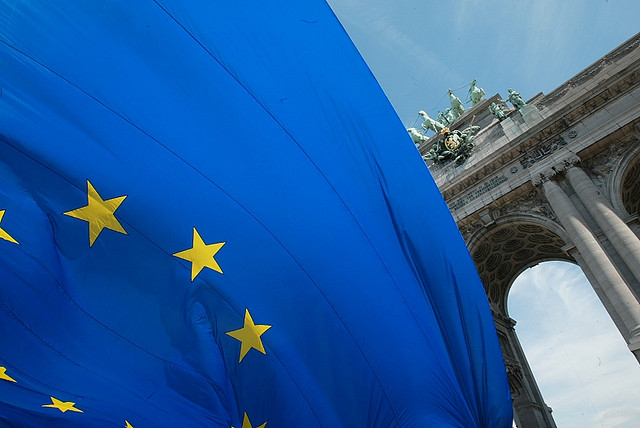By Chris Ward
Growth is always a goal in many countries, statistics appear everywhere and it’s always discussed. Even small reductions in GDP are met with bitter disappointment; it’s become one of the most important measures in the modern era. And yet there are surprisingly few discussions or resources on when and why this did happen. The special session on degrowth and history sheds some light on this development.
Previously there were disparate measures of production or measures of territorial expansion. Even in the times of the Industrial Revolution, the constant measuring of long term growth was not undertaken. The usage of the words for ‘Growth’ (In many languages) has only started happening after World War II. Most existing studies focus on national studies, but to truly understand it’s rise, you must look internationally and the relations between nations.
The idea that growth will fix all challenges in our society started in the 50s as a reaction to Post War, Cold War and European recovery factors. Countries in the OECD set targets that became more and more unattainable and levelled off. There was an assumption that it could continue for ever if there were the right policies, structures etc. ‘Growth’ also means that everything else is OK: social-wellbeing, progress, development, modernity, national power and prestige. These were all counters to the devastation nations felt after World War II and helped them resurrect the idea of progress. As growth is ‘good’, there can never be enough, it can never stop and it will always be OK.
Many people speak about GDP without really understanding what it is or why the measure it. It was created initially in the 30s by Franklin Rosevelt in order to measure whether his policies were successful. The first report was issued in 1937 and it was used to measure if the American economy could afford to enter World War II. This was the first time an economist was used to plan a war, unlike Germany who planned their war through soldiers.
During the cold war, GDP was almost a weapon used against the Soviets; the CIA used it to disprove anything that came out of the East. In 1989 the East even admitted defeat and said “Your number is better than ours” and we enter GDP’s phase as the be-all-and-end-all of measurements with the World Bank and IMF running training sessions with countries on how to measure GDP. The Americans even wanted to celebrate GDP as the “Greatest invention of the 20th Century” as it had created a level playing field… Great?
Even the inventor of GDP gave warnings about the misuse of his term and what it may lead to if followed blindly. He assumed that after World War II, GDP would stop being used, it was a war time measure in his mind. He thought that every generation should redefine their measure of GDP, as every generation would have different visions and circumstances, but no one listened.
European politics has enforced certain targets and measures around how member states should measure and adhere to GDP. In 2010 a new paper was issued saying that countries in debt could be exempt, this was then debunked by a 19 year old, despite the damage it had caused.
GDP originally never included certain measures such as prostitution, gambling and drugs. Until recently! With countries so desperate to show some form of growth, they got into ridiculous levels of detail about how to measure this.
Even the current head of the World Bank has criticised GDP, which has been blown out of proportion and he was forced to redact his statements.
The Chinese however are looking into measuring environmental factors, is withdrawing GDP as a measure and looking into other measurements. Africa is much the same and is looking into moving on from GDP. These areas are areas with vast workforces and resources so they may end up challenging our paradigms.

The following text is a repost of an open letter to the mayor of Barcelona, Ada Colau, setting out a manifesto for a reorganisation of the city in response to COVID-19. The manifesto currently has over 1600 signatures. Visit the manifesto website for more details and to add your signature: manifiesto.perspectivasanomalas.org/en The COVID19 pandemic and the experience of confinement h...

By Chris Ward Despite attending the conference, not everyone will fully understand what ‘Degrowth’ is, or the multitude of related terms that will be mentioned during the conference. Thankfully the first session on the schedule, offered by Federico Demaria and Giacomo D´Alisa was ideally suited for getting your knowledge up to scratch. Judging by audience responses to the question “What ...

Europe is exhausted. It is exhausted after long years of what is labeled as the Eurozone crisis. It is exhausted after years of economic success and – now – prolonged years of political failure. Every single attempt of deepening the political union of Europe after the enactment of the Maastricht Treaty in 1993 and the [...]